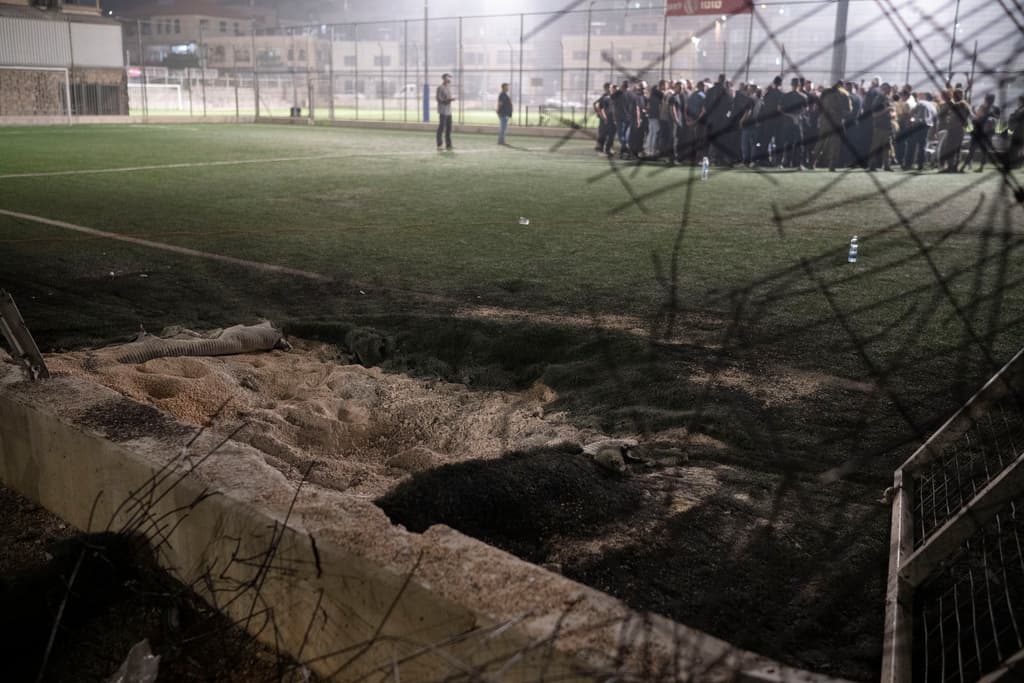The situation between Israel and the Hamas-allied and Iran-backed militia group Hezbollah in Lebanon has escalated again after a suspected Hezbollah rocket killed at least twelve children in the Golan Heights, annexed by Israel.
I think this is an extremely serious situation, possibly the most serious since October 7, says Aron Lund, Middle East analyst at the Total Defense Research Institute (FOI).
Everything indicates that it was a Hezbollah rocket that hit the Golan, but it was a mistake. And that's what everyone has been afraid of. The mistake.
Now it's largely up to Israel how they choose to handle it.
Free Hands
On Sunday, the Israeli security cabinet met. They then decided to give Prime Minister Benjamin Netanyahu and Defense Minister Yoav Gallant free hands to decide how and when Israel will respond to the attack.
From the most hardline on the fringe of the Israeli government, the tone is high. The country's Education Minister Yoav Kisch writes on the X platform that he expects the government to respond with "full force", even if it means full-scale war.
The Islamist movement Hezbollah functions as a "state within a state" in Lebanon and has at least as much military power as the country's army and a strong role in politics and social life.
Will Respond to the Attack
Analysts have long warned that Lebanon, led by Hezbollah, could be the powder keg that triggers a large-scale war in the region. Anders Ekholm, lieutenant colonel and researcher at the Defense University, says that Israel has the capacity to enter Lebanon and will respond to the attack.
But my assessment is that they don't want to initiate a ground offensive, he says.
They want to finish in Gaza first, to have as much freedom of action as possible with as many resources as possible.
According to Aron Lund, Hezbollah also doesn't want a large-scale war in the region.
On the other hand, they have an interest in keeping the conflict alive. They want to drain Israel's resources to force a ceasefire in Gaza, and it's the same with other groups in the region, such as the Houthi rebels.
Since the war between the terrorist-listed Hamas and Israel broke out after Hamas' terrorist attack on Israel on October 7 last year, shelling across the Israeli-Lebanese border has occurred almost daily.
The Golan Heights, located on Israel's border with Syria, have a strategically important military location. During the Six-Day War in 1967, Israel took large parts of the area from Syria, and annexed an area of around 1,200 square kilometers in 1981.
Only the US has recognized Israel's sovereignty over the area, a decision made in 2019 by then-President Donald Trump.
Tens of thousands of Syrians and Palestinians fled or were driven out of the Golan Heights following Israel's conquest. But around 23,000 Arabs, mostly Druze, still live in the area. Since Israel's conquest, approximately the same number of Israeli settlers have moved to the area. The settlements are illegal according to international law.






